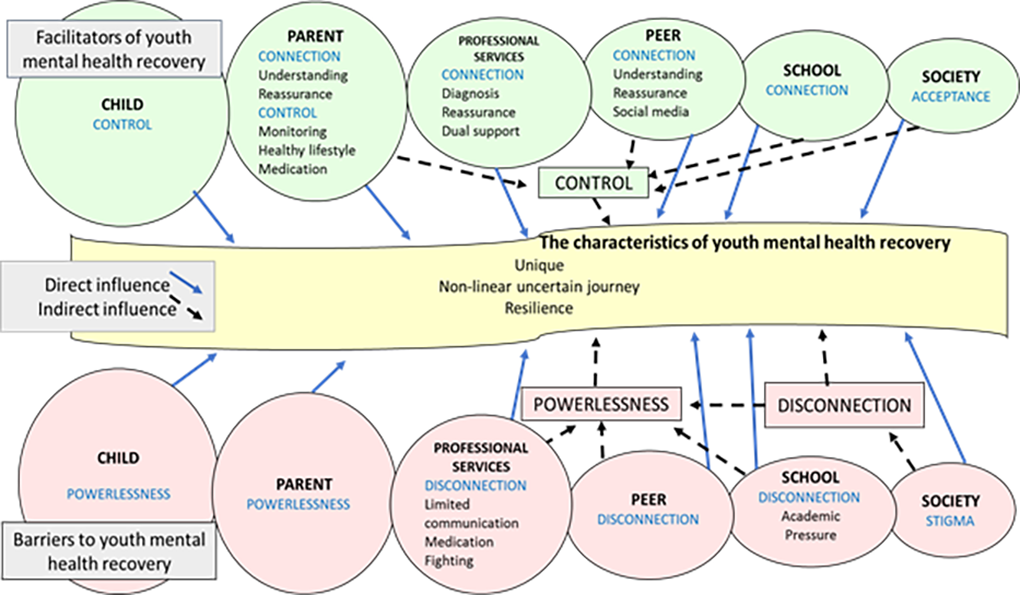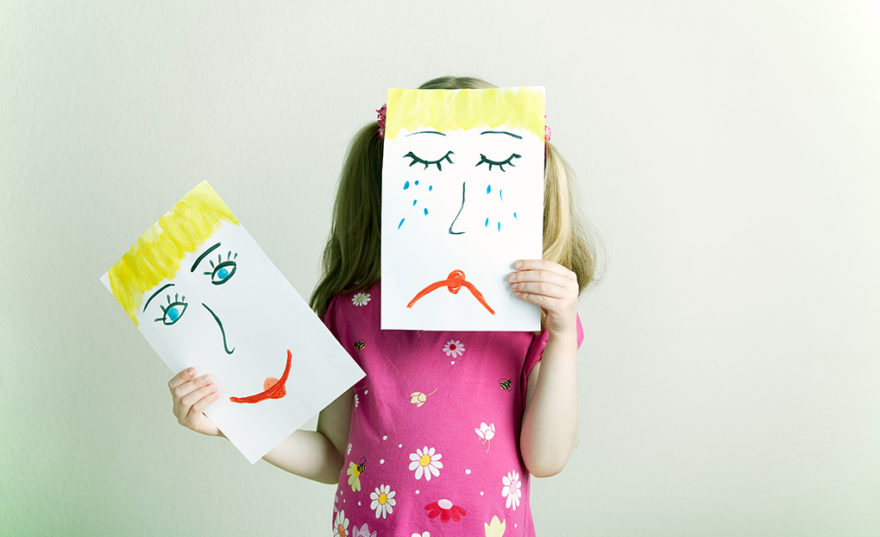Mental health disorders have a negative impact on the individual, society and global economy. The prevalence of mental disorders is increasing in young people, and if unaddressed, research has shown that they may develop into severe and chronic illnesses. Despite this, research into youth mental health recovery is limited. To address this gap the researcher aimed to develop a theoretical framework of recovery in youth mental health and identify what facilitates this process. 14 parents of children engaged with the Child and Adolescent Mental Health Service were interviewed in relation to their understanding of youth mental health recovery. The transcripts of these interviews were analysed using the constructivist grounded theory approach.
The emerging theory and model present the following key findings:
- The characteristics of youth mental health recovery identified in the study reflect existing research in that it is a unique and non-linear process. A novel finding in this research was that parents see resilience development in young people as signifying mental health recovery. Resilience is the ability of the young person to cope and effectively adapt to life’s stressors and challenges. Resilience involves the young person taking control over their mental health by developing their knowledge of triggers, symptoms, relapse indicators, help-seeking resources and coping skills. Resilience and control develop in parallel with increasing maturity; control is often mediated by parents.
- The theory suggests that due to developmental factors, youth mental health recovery occurs within the ecological context of complex hierarchal interconnected social relationships. The hierarchical order includes the young person, parents, professional services, peers, schools and society respectively. This hierarchy is hypothesised to be based on the parental perspective, and the young person’s developmental stage and mental health needs.
- The facilitators to recovery include control, connection and acceptance. The barriers to recovery include powerlessness, disconnection and stigma.
- The theory proposes that connection is of utmost importance in the process of youth mental health recovery due to the significance of social relationships within this developmental stage. Connection is developed through understanding, reassurance, diagnosis and dual support. It allows the young person to experience hope, acceptance, positivity and normality, which are required to develop resilience directly and to gain the confidence to increase control over mental health. Therefore, connection both directly and indirectly promotes youth mental health recovery. An innovative finding reflective of modern societal trends was that social media was a key platform for connection.
The theory reflects elements of existing developmental and recovery research and provides a novel understanding of youth mental health recovery.

Figure 1. Model of youth mental health recovery
Implications of the current study
The implications of the study include gaining insight into youth mental health recovery. This insight provides the necessary foundations for promoting youth mental health in clinical, educational and government forums. The present theory emphasises that clinicians need to be aware of, and support, positive connections with young people, parents, professional services, peers, schools and society in youth mental health. The research indicates that youth mental health recovery is signified by the development of resilience, therefore, it appears that clinicians need to focus on resilience-orientated interventions to enhance youth mental health. The research also highlighted the sense of connection achieved through social media. Therefore, social media is positioned as a key forum to promote youth mental health education and policy through broadening the availability of cost effective support services offered to young people.
Areas for future research
Future research could directly explore young people’s personal experiences of mental health recovery to consolidate the emerging theory. The young person’s perspective would help reveal areas of overlap and divergence to help develop a holistic model of youth mental health recovery.
This article is a summary of the paper published in CAMH – Kelly M, Coughlan B. (2019). A theory of youth mental health recovery from a parental perspective. Child and Adolescent Mental Health, 24, 161-169. doi: 10.1111/camh.12300

